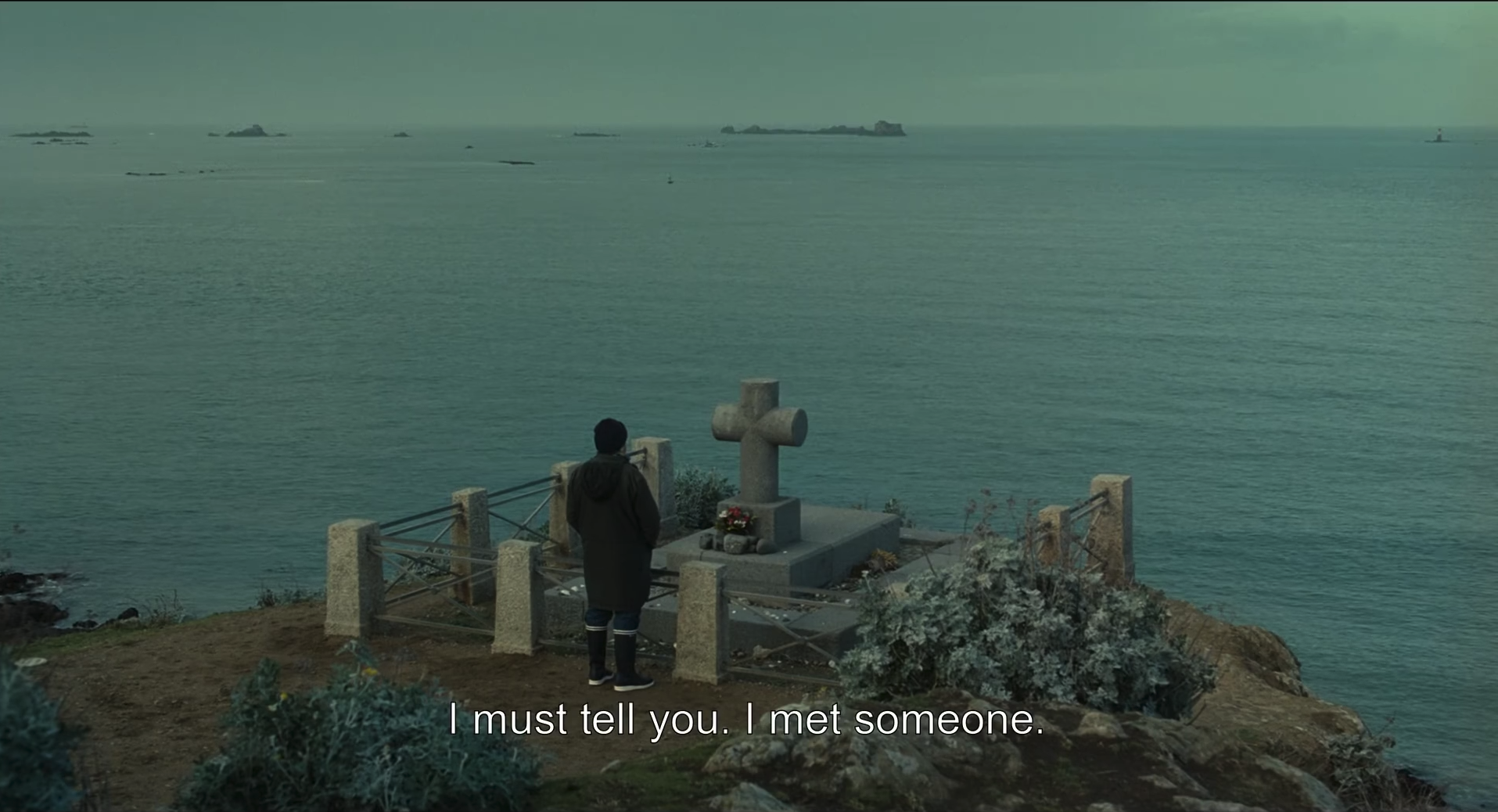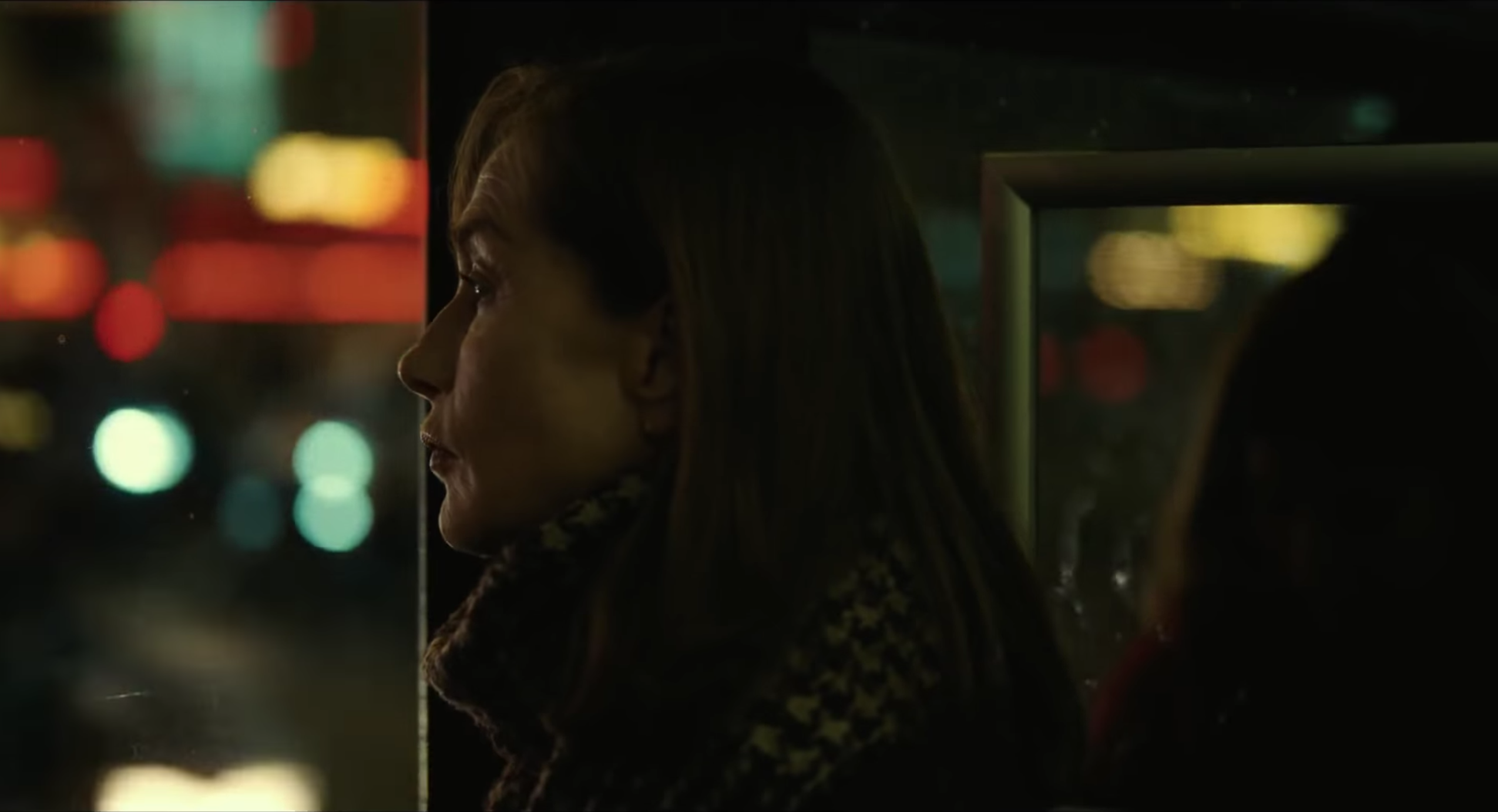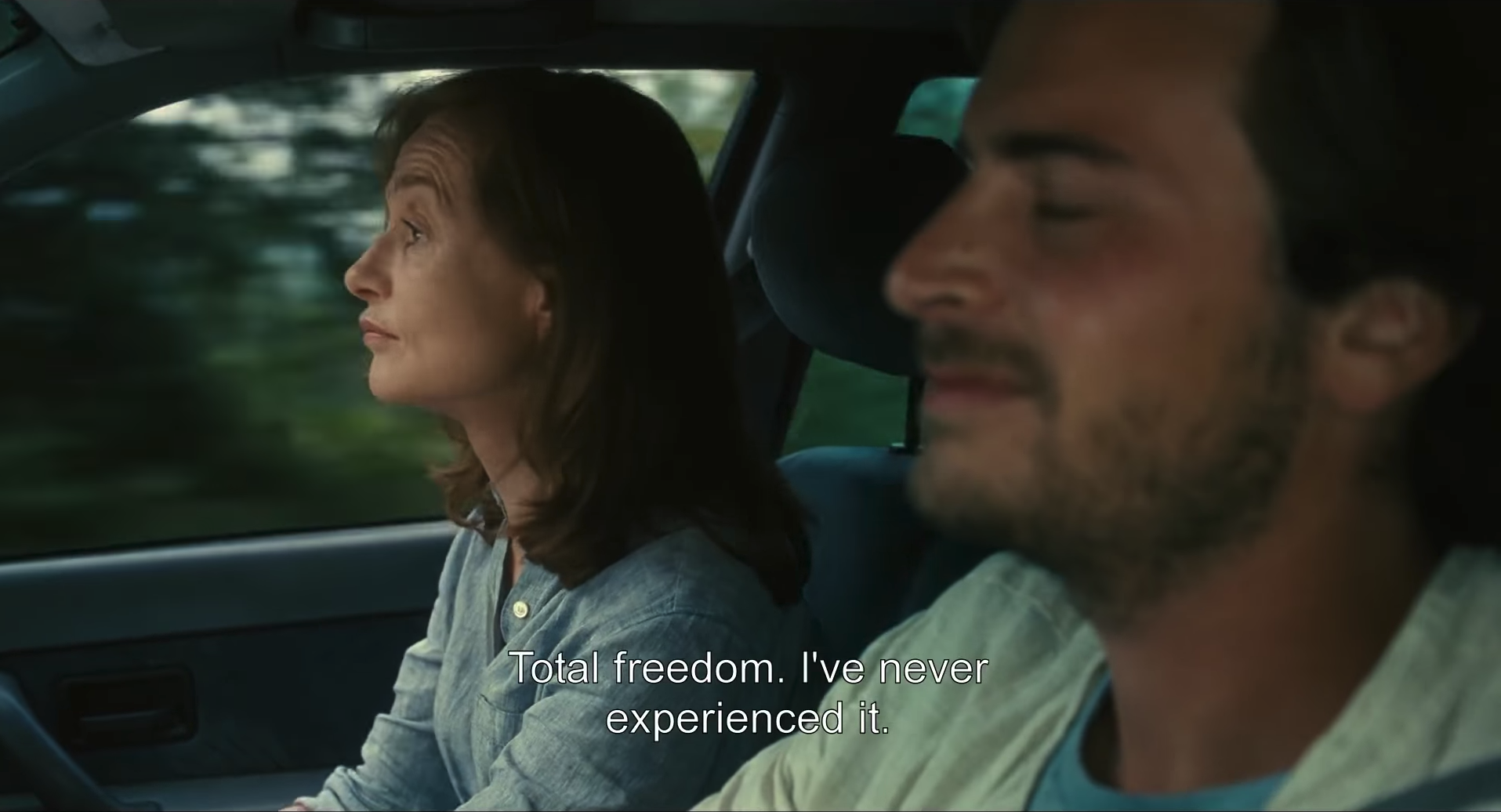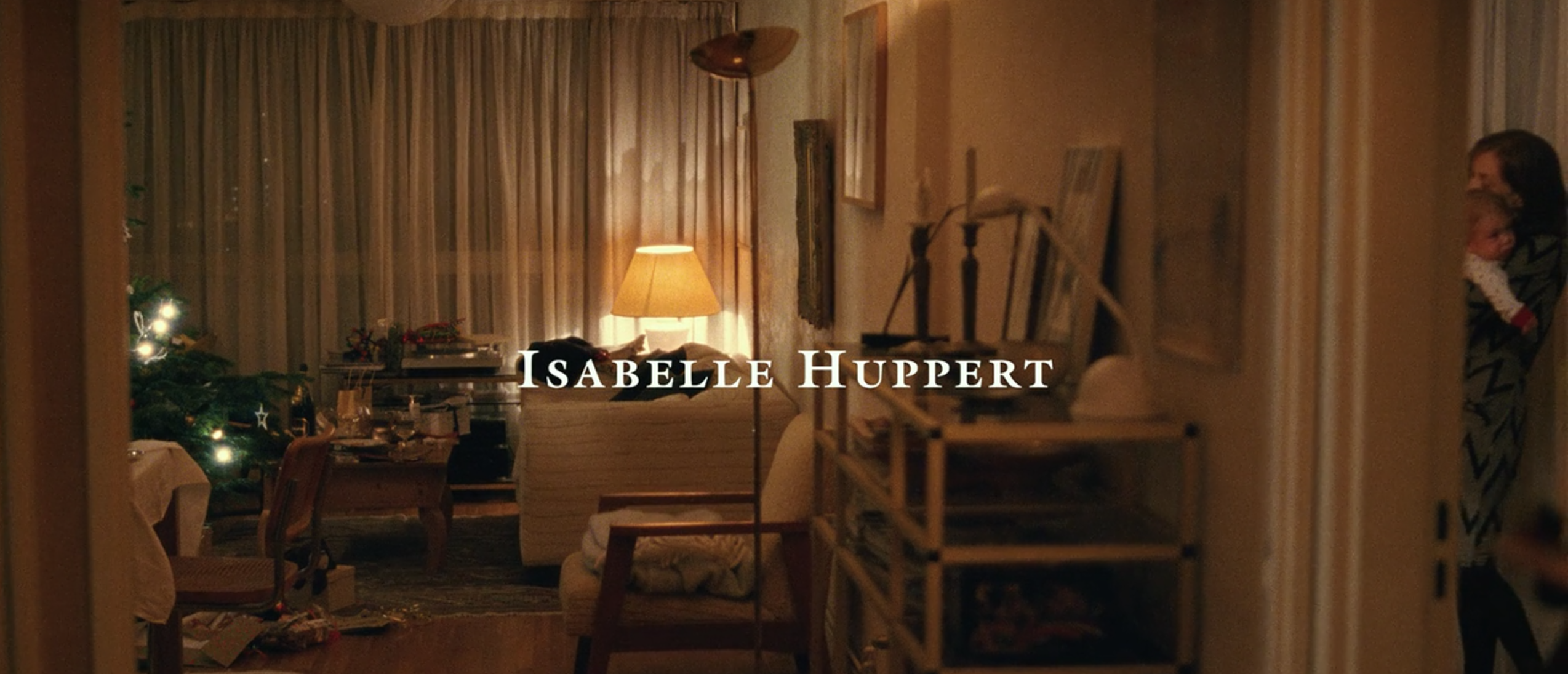Existential Loneliness in L'Avenir
Spoiler Alert: This post is about the movie L’Avenir (Things To Come), and contains some important plot points
Nathalie, played by Isabelle Huppert, sits in the darkness inside a ferry with the white noise of the sea filling the space around her. Her children can be seen through a window, in light, outside. When her husband knocks on the glass, asking her to join them, the camera pans in to an essay she is grading, titled “Peut-on se mettre à la place de l’autre”, which means: Can we put ourselves in the place of the other?
They arrive at an island, where they visit the resting place of Chateaubriand, a great writer. Together, they observe the grave, a stone cross that faces the sea. One by one, they leave until only Heinz- the father- is left, staring into the horizon. It is then that the title “L’Avenir” appears.

Throughout the film, we see four generations of Nathalie’s family struggling in different ways, looking towards their pasts and their futures. Each moment is not without the context of the last, and the uncertainty of the next one- and in all of them lies a pervading isolation.
We follow Nathalie through a divorce, the death of her mother, and the discontinuation of her published work. In regards to her essays, her publisher states, “The future seems compromised”, unknowingly speaking her mind.

The loneliness that follows is most evident in her growing attention to her relationships. In an early scene, Nathalie’s mother calls in the middle of the night, and she is reasonably curt. When she visits and finds her mother confined to bed, she is ready to leave, barely looking at her while stating that she is in a rush. After Heinz leaves her, she becomes surprisingly attentive. A scene in her ex-husband’s summer home shows her desperately traveling a long distance down a beach and trudging through mud- left behind by a receded tide- just to find reception to call her mother.
When Nathalie’s mother dies, she is left with Pandora, a black cat that she never got along with. She tells Fabien, her protege, that Pandora is unbearable, and calls the cat many names during their time together. But when Pandora runs away, Nathalie spends the night wandering the edge of the woods and calling his name.
There’s another phenomenon that occurs, which is best explained by Raymond Carver’s short story “Why Don’t You Dance?”. In it, a young couple dances for a man who is selling all his belongings in a yard sale. When the man dances with the girl, she says “You must be desperate or something”. And afterwards- for several weeks- she tells everyone about what happened, as if she were trying to figure out how to feel about it.
Nathalie similarly tells the people in her life self-affirming things. “Don’t worry,” she says to Fabien, “I’m taking it very well.” Earlier on in the film, you watch as she talks to her husband from behind a newspaper, or to her mother while organizing the fridge. Now, when she speaks, she looks attentively for reactions.

19th century philosopher Jean Paul Sartre proposed the idea that people are “condemned to be free.” Because there is no creator, there is no plan for us, and we are solely responsible for ourselves. If that is true, then we all live and die alone.
When Nathalie cries- with her cat in her otherwise empty room- while living in a house filled with people, I can’t help but think of her exclaimation to Fabien that she has “Total Freedom”. Loneliness is typically thought of as a lack of company, but existential loneliness comes from the uncertainty of the path ahead of you. With all of her relationships changing, Nathalie is no longer certain of the role she plays, and feels lonely because of it. She searches for direction in the reactions of those around her, and only finds that she- like the rest of her world- is changing.
There is redemption for Nathalie at the end of the film, symbolized by Fabien’s adoption of her cat- an indication of her willingness to let go. We find her among her children, and her daughter Chloe’s growing family, where she lovingly cares for her new grandchild, and as the camera pans away from her, she croons “À la claire fontaine” in a room that feels warm, comforting, and filled with love.
